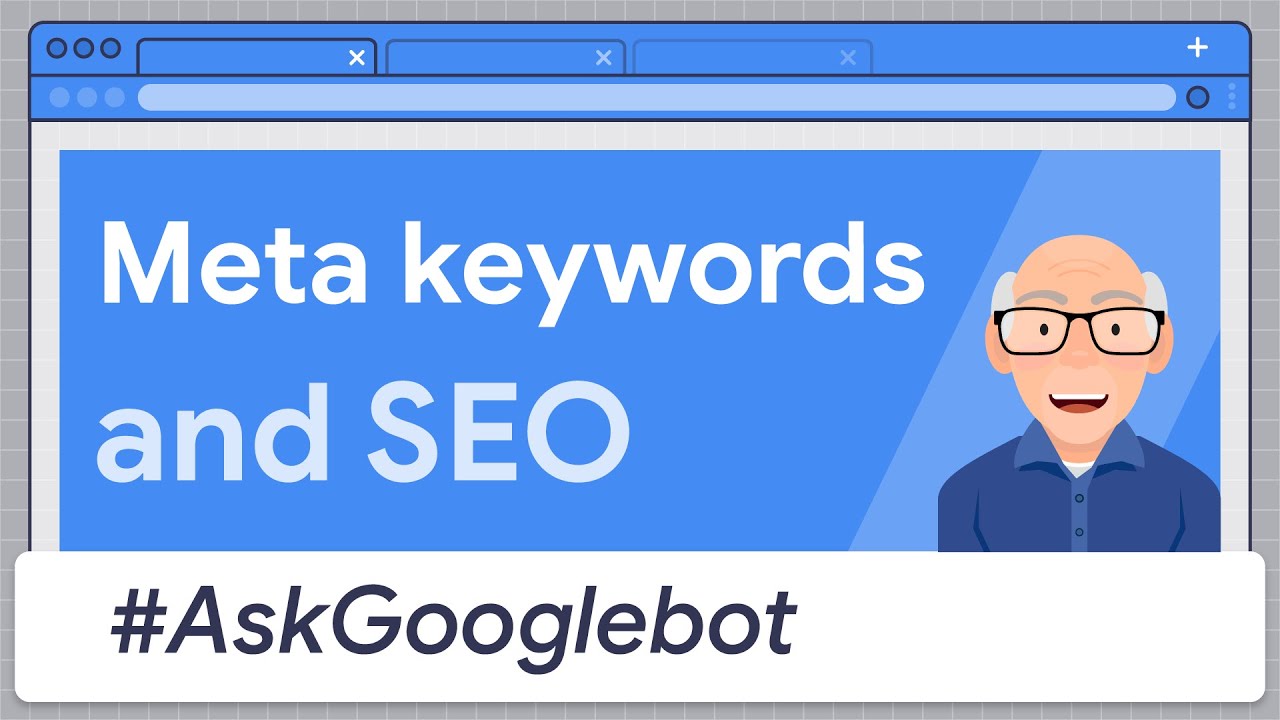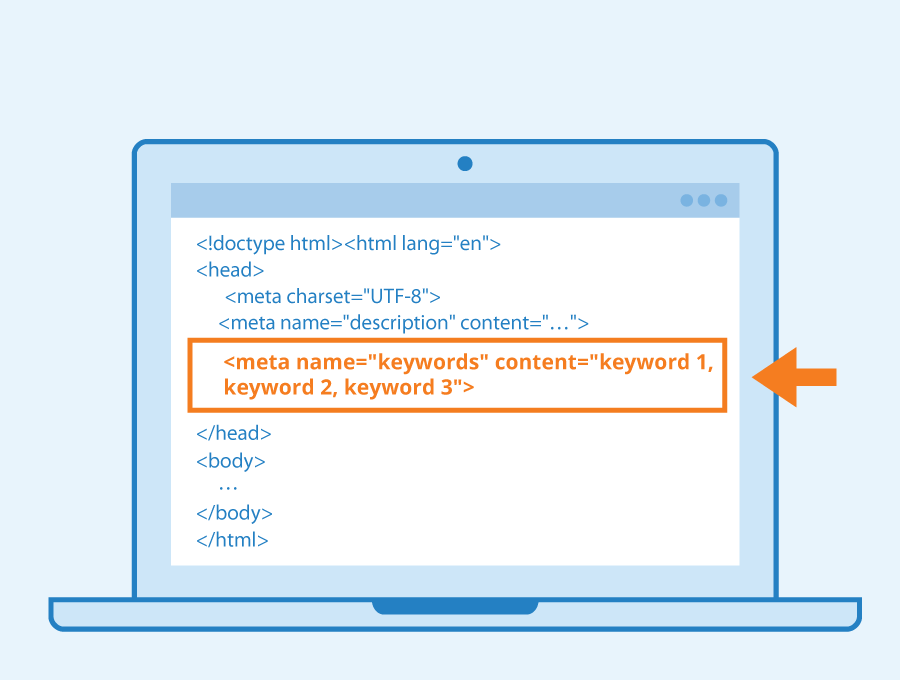If you are working on improving your website's SEO, you may have heard about meta keywords. Meta keywordsare a type of meta tag that is used to provide information about the contentof a webpage to search engines. But, are meta keywords a Google ranking factor?
Let's explore the topic of meta keywords and their relationship to SEOand Google rankings. We'll provide you with an overview of what meta keywords are, how they work, and whether or not they are still relevant in today's SEOlandscape.
What Are Meta Keywords?
Meta keywords are a short list of words or phrases that describe the main topics or themes of a page. In the past, meta keywords were an important part of SEO. They were used by search engines to help determine the relevance of a webpage to a particular search query. However, over time, their importance has diminished.
How Do Meta Keywords Work?
When you add meta keywords to your webpage, you are essentially telling search engines what your content is about. This information is used by search engines to help them understand the relevance of your page to a particular search query.
However, meta keywords are not the only factor that search engines use to determine the relevance of a webpage. In fact, they are just one of many signals that search engines use to rank websites.
Are Meta Keywords A Google Ranking Factor?
Meta keywords are a type of meta tag that were used by webmasters in the past to provide information about the content of a webpage to search engines. They were considered an important part of SEO and were used by search engines to help determine the relevance of a webpage to a particular search query.
However, over time, their importance has diminished, and they are no longer considered a significant ranking factor by Google. In fact, Google hasn't used meta keywords as a ranking factor since 2009.
The Decline Of Meta Keywords
One of the main reasons for the decline of meta keywords as a ranking factor is due to abuse by webmasters. Some webmasters have used meta keywords to stuff their pages with irrelevant keywords in an attempt to manipulate search enginerankings. This practice is known as keyword stuffing and is considered a black hat SEOtechnique.
As a result, search engines have become less reliant on meta keywords as a ranking factor and have focused more on other signals, such as the quality and relevance of the content on a webpage, the number and quality of backlinks, and user engagement metrics.

Do keyword meta tags matter for Google Search?
The Importance Of Other Meta Tags
While meta keywords are no longer considered a significant ranking factor, there are still several other meta tags that can be used to provide information about the content of a webpage. These include:
- Meta Description- A meta description is a short description of the content of a webpage that appears in search engine results. It is still considered a critical component of SEO and should be written with the user in mind.
- Title Tag - A title tag is an HTML element that specifies the title of a webpage. It is also an important ranking factor and should be optimized for both search engines and users.
- Header Tags- Header tags (H1, H2, H3, etc.) are HTML elements that are used to structure the content of a webpage. They are also an important ranking factor and should be used to help users navigate your website.
Should I Even Bother With Meta Keywords?
While meta keywords are no longer considered a critical component of SEO, there is no harm in including them on your website. Some smaller search engines may still use meta keywords to help determine the relevance of a webpage.
However, you should not spend too much time optimizing your meta keywords. Instead, focus on creating high-quality content that provides value to your users.
This will help improve your website's relevance and authority, which are much more important ranking factors than meta keywords.
Other Factors That Affect Rankings
While meta keywords are no longer considered a critical component of SEO, there are many other factors that affect rankings. These include:
Content Quality And Relevance
Search engines want to provide the best possible results for their users. To do this, they focus on content quality and relevance. Websites that provide high-quality, relevant content that meets the needs of their users are more likely to rank well in search engine results pages (SERPs).
Backlinks
Backlinks are links from other websites to your website. They are an important ranking factor because they are a sign of trust and authority. The more high-quality backlinks your website has, the more likely it is to rank well in search engine results pages.
User Engagement Metrics
User engagement metrics, such as time on site, bounce rate, and click-through rate, are also important ranking factors. They indicate how users interact with your website and can affect your rankings in search engine results pages.
Site Speed And Performance
Site speed and performance are important ranking factors as they impact the user experienceon your website. Slow-loading pages can increase bounce rates and negatively affect user engagement metrics. To improve your site speed and performance, you can optimize images and videos, use caching and compression, and minimize the use of unnecessary scripts.
Mobile-Friendliness
With the majority of internet traffic now coming from mobile devices, mobile-friendliness has become a crucial ranking factor. Websites that are not optimized for mobile devices may have difficulty ranking well in search engine results pages. To improve your website's mobile-friendliness, you can use responsive design, optimize your images and videos for mobile devices, and improve your website's loading speed on mobile devices.
Domain Age And Authority
The age and authority of your website's domain can also impact your rankings in search engine results pages. Older, established websites with a history of producing high-quality, relevant content are generally viewed as more authoritative by search engines. To improve your website's domain authority, you can focus on creating high-quality content, building backlinks, and improving user engagement metrics.

Google Ranking Factors: Which Ones are Most Important?
People Also Ask
How Many Meta Keywords Should I Include On My Webpage?
There is no set number of meta keywords that you should include on your webpage. However, it is generally recommended to include only a few relevant keywords that accurately describe the content of your webpage.
Can I Use The Same Meta Keywords On Multiple Webpages?
It is generally not recommended to use the same meta keywords on multiple webpages as each webpage should have unique content and keywords. However, if two webpages have similar content, you can use some of the same keywords on both pages.
Do Meta Keywords Affect Local SEO?
While meta keywords are not a direct ranking factor for local SEO, they can still be used to describe the content of a webpage and help search engines understand its relevance to a particular geographic area.
Can I Still Use Meta Keywords For Other Search Engines Besides Google?
While Google does not use meta keywords as a ranking factor, other search engines may still use them to help determine the relevance of a webpage. Therefore, it may still be beneficial to include meta keywords on your webpage for those search engines.
How Do I Find The Right Meta Keywords For My Webpage?
To find the right meta keywords for your webpage, you can use keyword research tools such as Google Keyword Planner or SEMrush to identify relevant keywords with high search volume and low competition. Additionally, you should consider the topics and themes of your webpage's content and use keywords that accurately describe them.
Conclusion
In conclusion, meta keywords are no longer a significant ranking factor for Google and many other search engines. While they can still be used to provide information about the content of a webpage, they are not critical to the success of your SEO efforts.
Instead of focusing on meta keywords, you should focus on creating high-quality content that provides value to your users. This will help improve your website's relevance and authority, which are much more important ranking factors than meta keywords.
Remember, SEO is not about trying to manipulate search engine rankings. It's about creating a website that provides value to your users and helps them solve their problems. If you focus on this, the rankings will come naturally.
